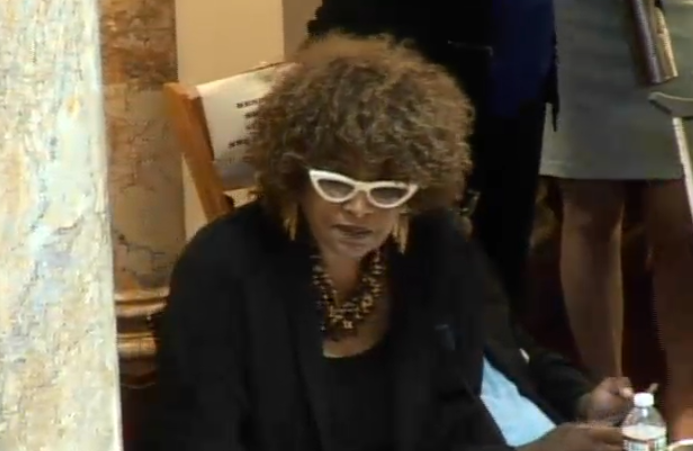Gill: New Jersey’s COVID-19 Resource Allocation Directives Fail to Protect the Elderly and People of Color.

New Jersey’s COVID-19 Resource Allocation Directives Fail to Protect the Elderly and People of Color.
MONTCLAIR – It is undisputed that people of color and minorities have been historically disadvantaged by our healthcare system. Members of racial and ethnic minorities are less likely to receive preventive health services and they have less access to healthcare. The COVID-19 pandemic has only highlighted the disparities we know exist in healthcare for people of color and in low-income communities. The state of New Jersey is among the hardest hit in the nation during this pandemic. Inequalities in treatment and diagnosis can have significant and severe impacts on minorities who are already at a higher risk of
diseases such as high blood pressure, diabetes, and other comorbidities.
On April 11, 2020 Commissioner of the New Jersey Department of Health, Judith Persichilli released directives, the document Allocation of Critical Care Resources During a Public Health Emergency. The failure of the Commissioner to provide a directive for mitigating comorbidities and age in the allocation of scarce resources is particularly disturbing. Absolute immunity from civil and criminal liability is predicated upon adherence to the Commissioner’s directive. Without a directive to mitigate against comorbidities and age, black and brown communities are stripped of their ability to seek redress in court.
These directives use underlying health issues to justify the allocation of scarce resources such as ventilators, beds and medicine. This could have a harmful impact on the elderly and people of color due to implicit bias associated with age and comorbidities. These comorbidities and their higher prevalence among people of color and low-income communities are precisely why the Commissioner’s allocation policy is flawed.
Standards for who shall receive care based on factors such as age and underlying conditions will impact those historically disadvantaged by our healthcare system. Despite the acknowledgement of these comorbidities and the disproportionate impact of COVID19 on communities of color and age, the Commissioner stated during a COVID-19 briefing:
We do know that it exists, institutional bias exists throughout all of health care… The allocation policy requires that there are groups of people that help make the decision and the directly treating physician
cannot make the decision. Hopefully, that group will be able to control for the bias we know exists prior to the pandemic.
On April 20th, in response to the lack of consideration for comorbidities and age, I requested the Commissioner immediately establish directives to mitigate bias in the decision-making process. The combination of the directive and the granting of absolute civil and criminal immunity based upon the directive made it imperative the directive be immediately amended.
On April 24th, the Commissioner agreed that her directives were flawed and should be amended to reflect the Massachusetts directives. The Massachusetts guidelines require:
Decisions must be made based on the patient’s chance of short-term survival. Comorbidities, which might affect their long-term prognosis, are no longer part of a scoring system physicians and others will use if they need to choose between patients who need an ICU bed, medication, ventilators, and/or any other care.
Commissioner Persichilli advised that it would take up to three weeks to amend the directive. Each day that goes by without amending this directive is a day where decisions are made based upon an admittedly flawed directive. To date I have not received an amended directive and from my knowledge the directive remains unamended. If Massachusetts can do it, why can’t New Jersey?
The failure to amend the directive to acknowledge comorbidities and age continues the implicit bias that harms these communities and the directive existing unamended sets a dangerous precedent in the event of a future crisis. We cannot allow the Commissioner’s flawed directive to continue risking lives. The lack of action to amend these directives is a failure by Commissioner Persichilli to protect all of our citizens.
The Commissioner must immediately establish directives to mitigate bias in the decisionmaking process in order to protect our most vulnerable communities.









